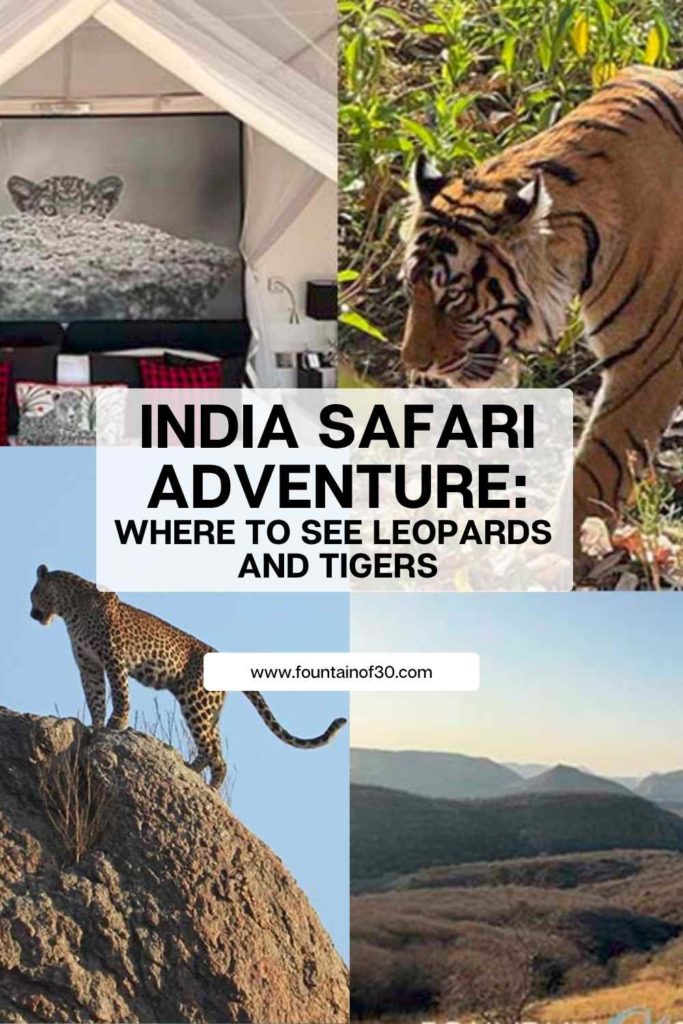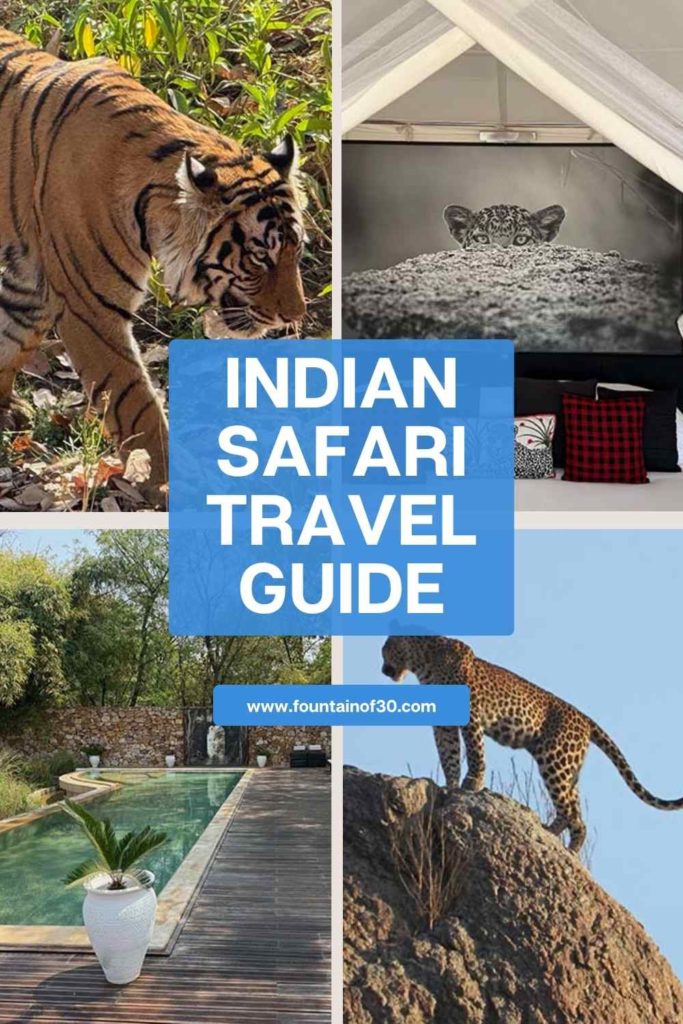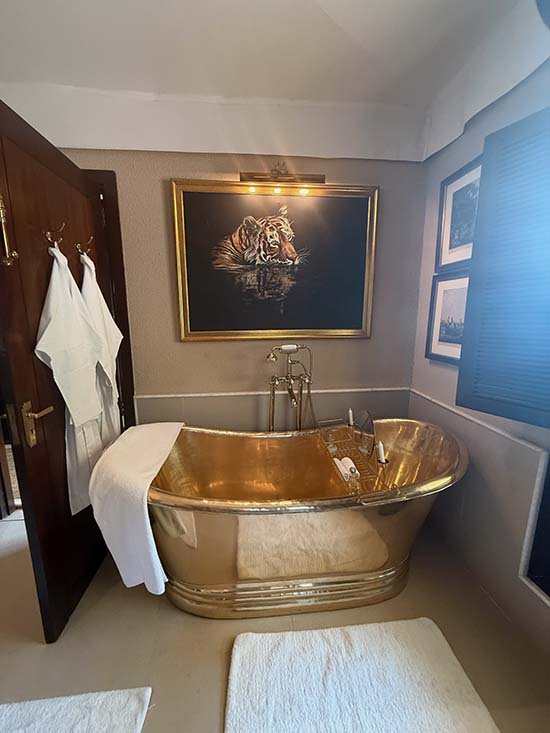You probably think of Africa when you think of going on a wildlife safari; however, India has beautiful state and national parks and a number of reserves where animals like sloth bears, leopards and tigers roam freely. Those same parks are home to some beautiful lodges where you can stay, experience the local culture, eat delicious food and see animals in their natural habitat, living their best lives. Travel to India for a wildlife safari adventure.
Want to see Leopards in India?
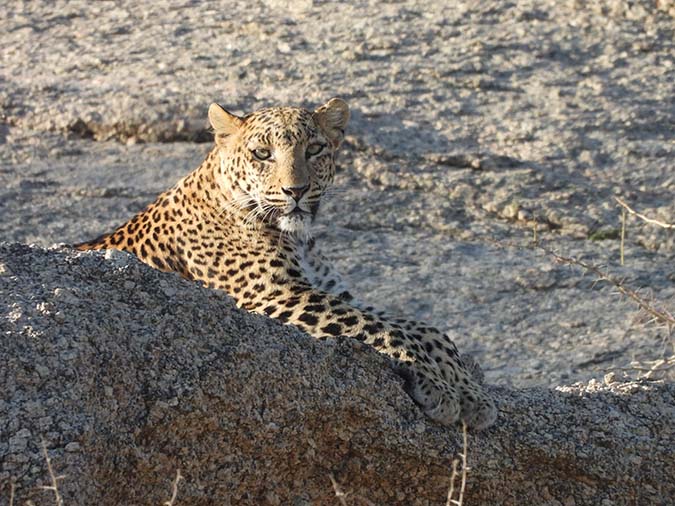
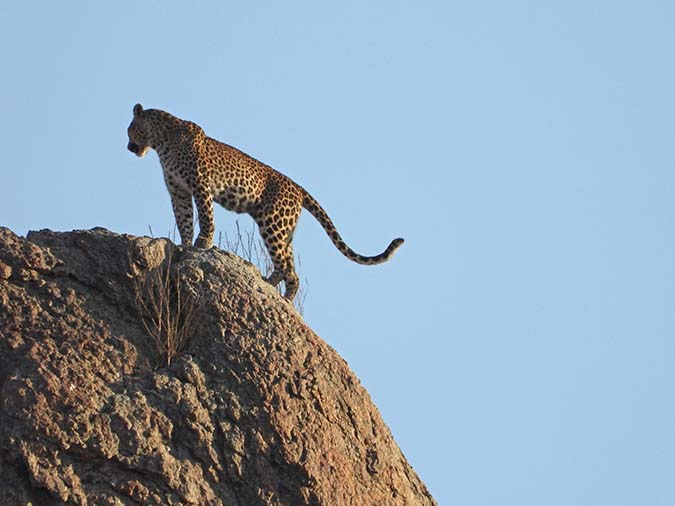
Jawai is one of the few places where humans and leopards live in (relative) harmony. The leopards and the local Kabari villagers co-exist and respect each other in a way that’s rare in today’s world, allowing lucky guests to see wild leopards in the most natural setting possible.
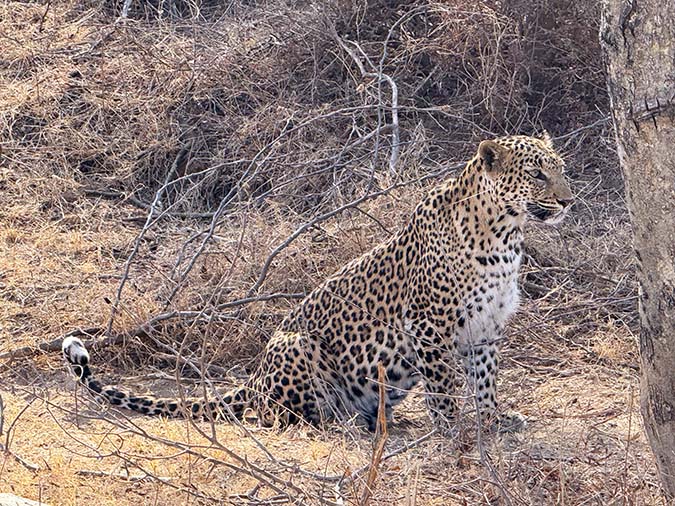
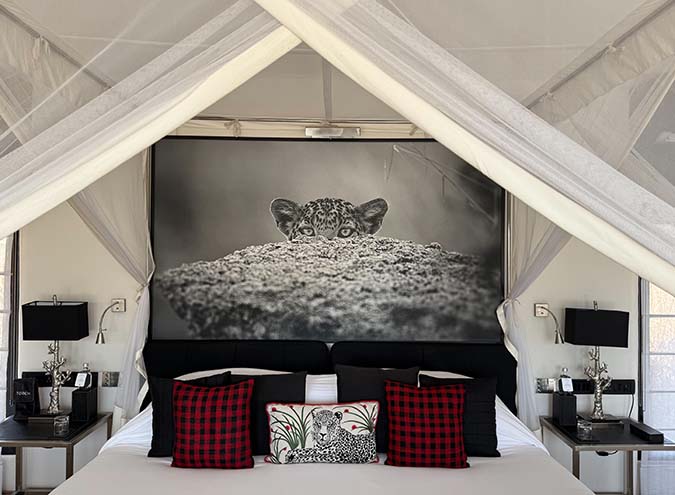

Where to Stay in Jawai
The Sujan Jawai Bandh camp is the primary option, and it is exceptional. Think sweeping views of the mountains from your glamorous tent and beautiful artwork that features the area’s leopards while also highlighting the beauty of the local Kabari people. Sujan Jawai has experienced guides and drivers on staff who’ll take you out twice a day to look for leopards and explore the countryside (usually around 6:00am and then again at 4:00pm or so).
YES! I LOOK FORWARD TO #GROWINGYOUNGER
PLEASE SUBSCRIBE ME TO YOUR MAILING LIST.
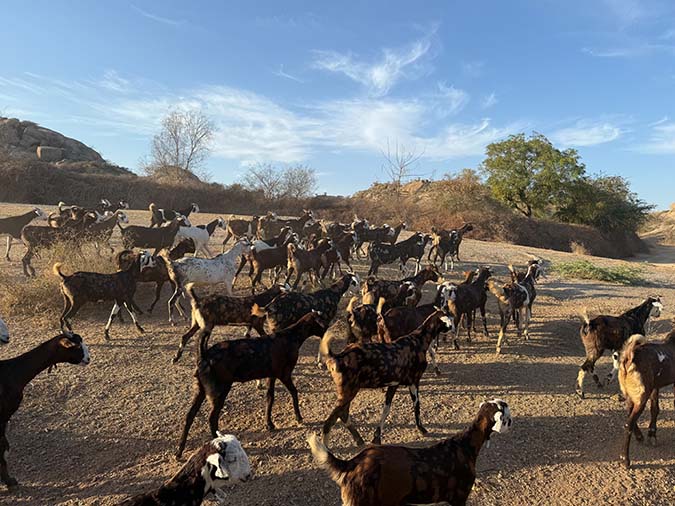
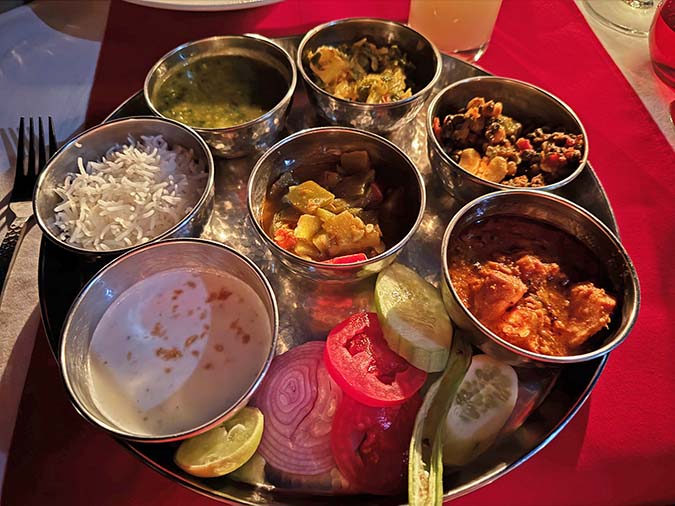
The camp has great farm-to-table meals that mix local Rajasthani cuisine with Western favorites, and there’s nothing like enjoying a delicious thali meal outside under the stars (star-gazing is great here since you’re far away from most city light pollution).
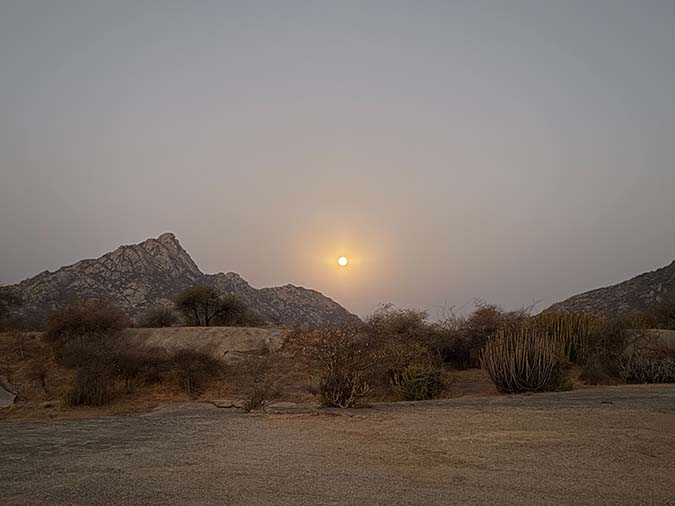
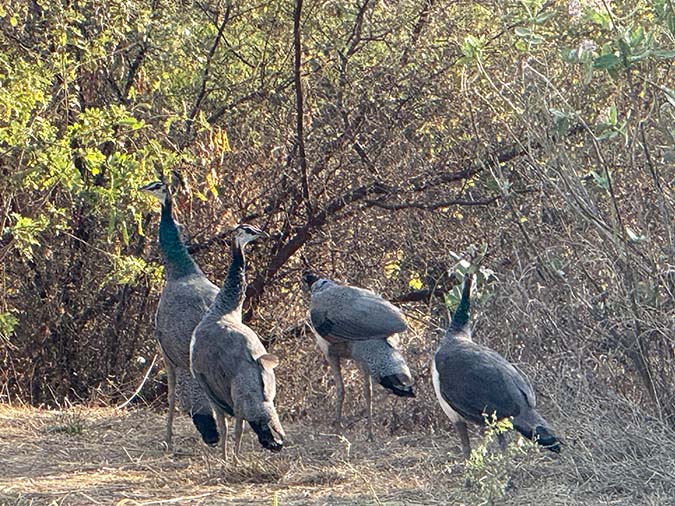
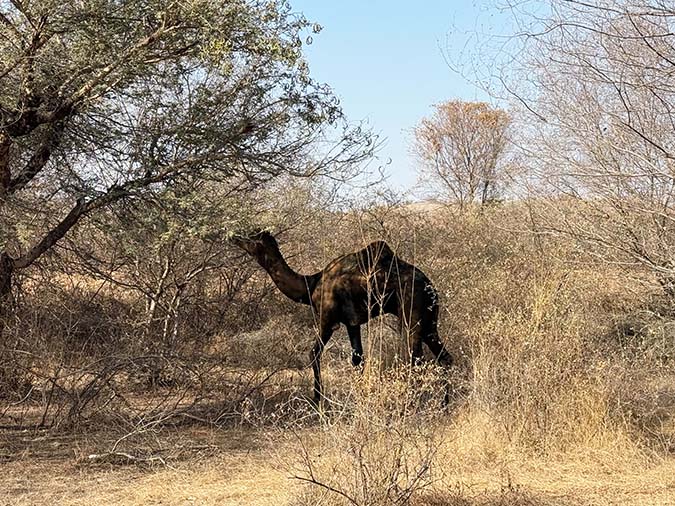
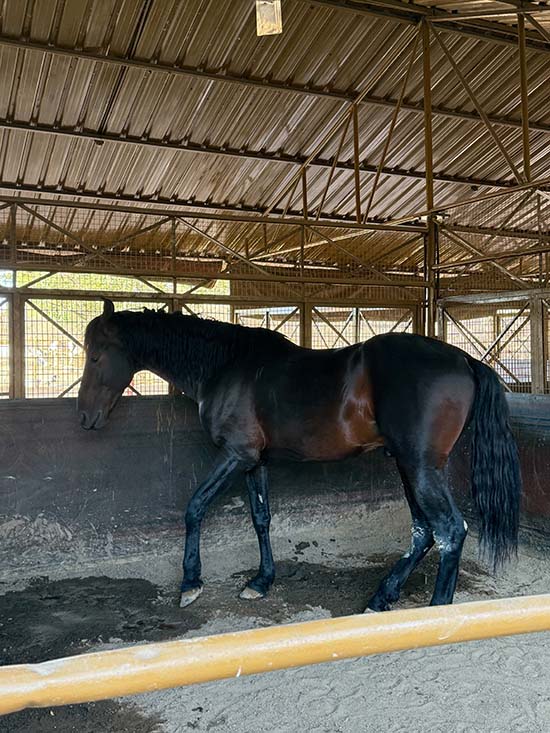
If you want a break from the game drives, you can also visit the Marwar horses with their distinctive curled ears, or go on a village visit and see the local farms and how the guides live.
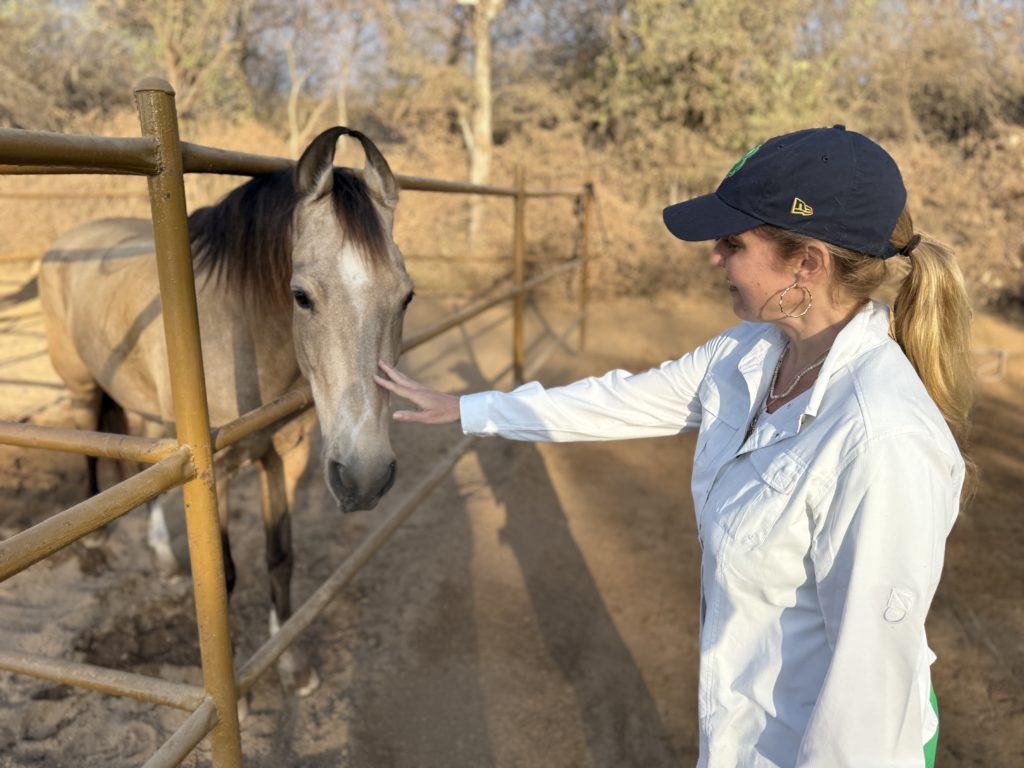
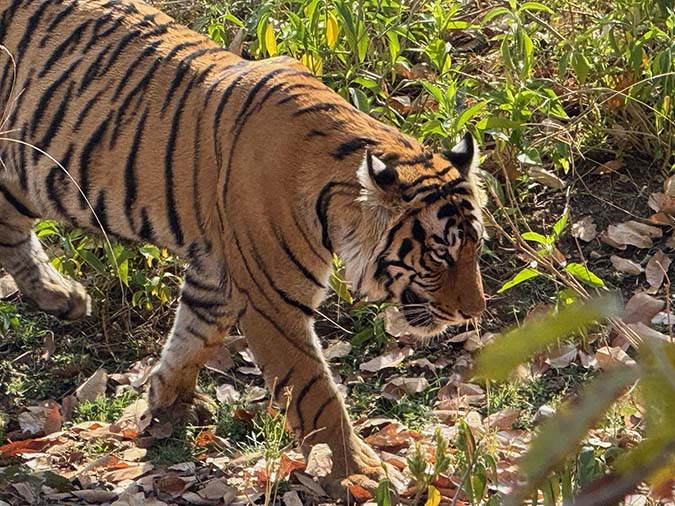
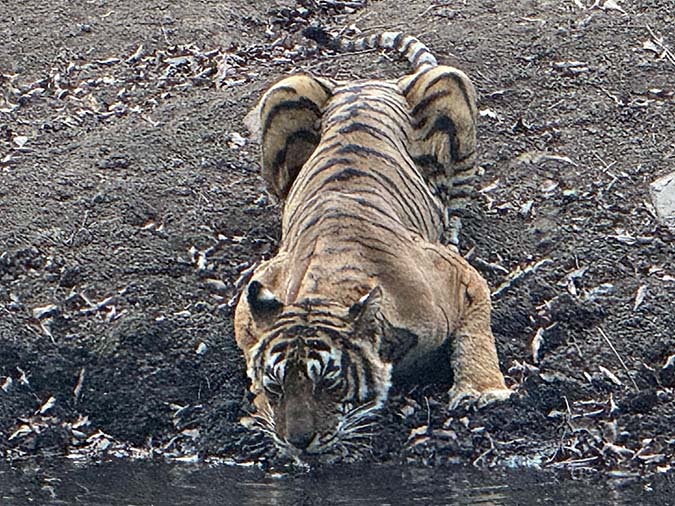
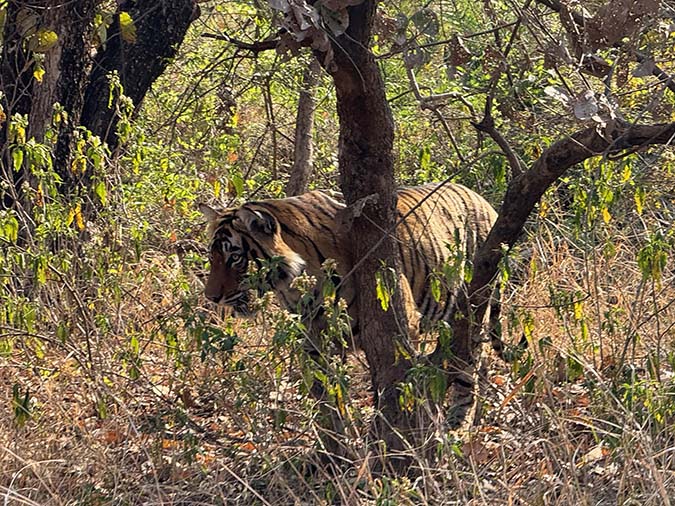
India Safari: Want to See Tigers?
Seeing tigers—India’s national animal—in their natural habitat is why people flock to Ranthambore, and the beautiful landscapes filled with ancient ruins are a stunning setting for tigers, leopards, sloth bears, peacocks, monkeys, and more.
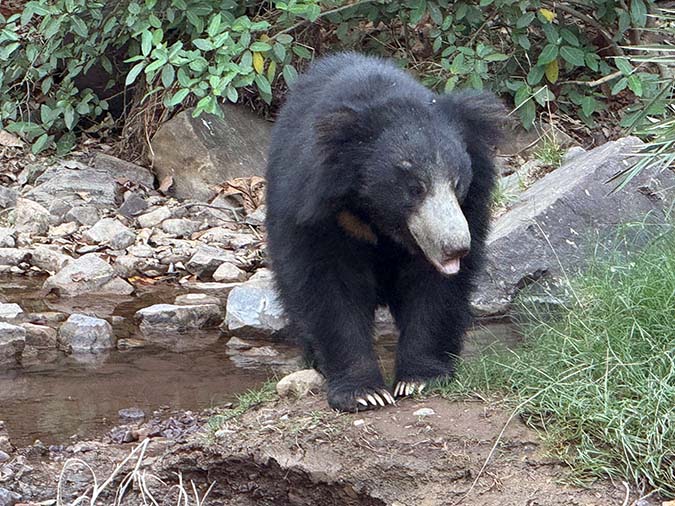
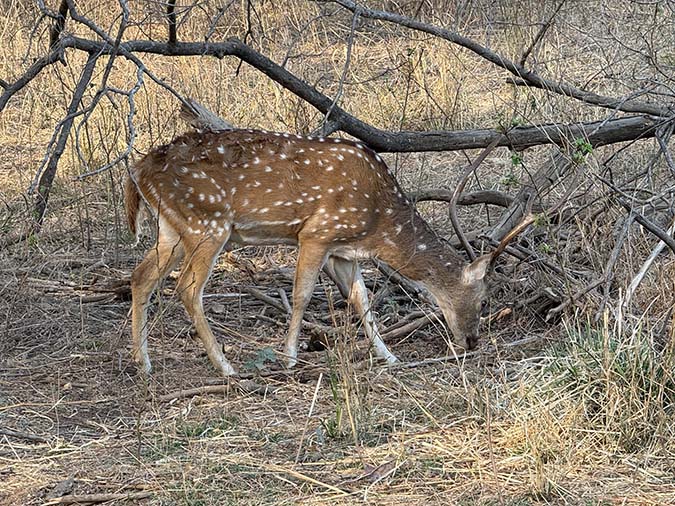
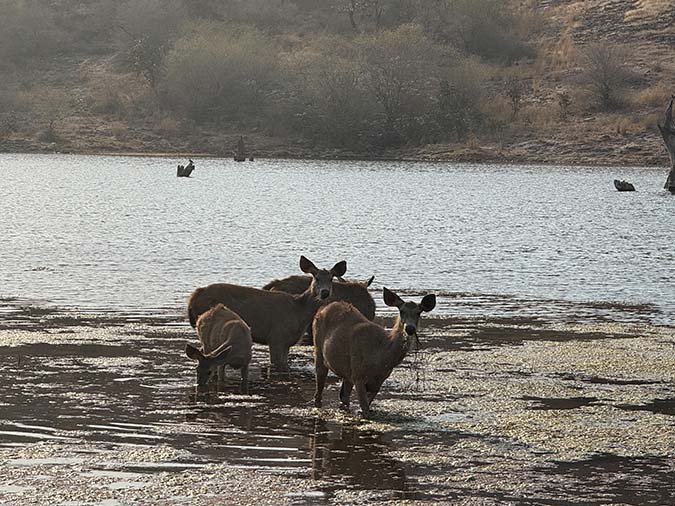
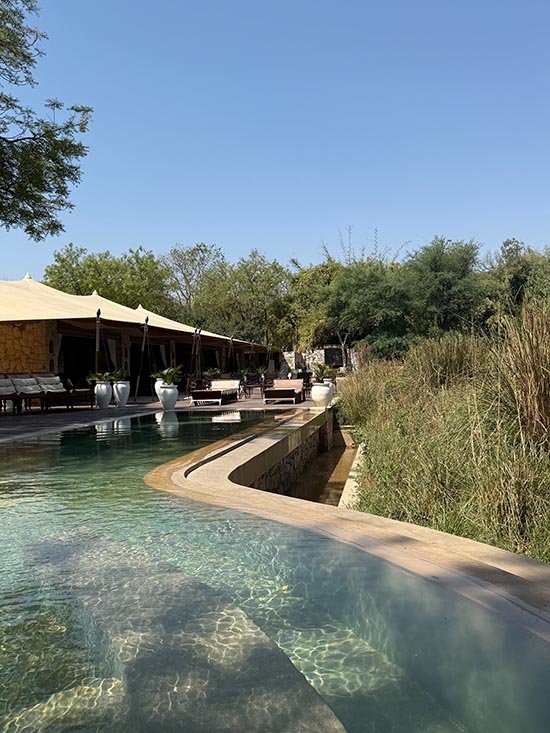
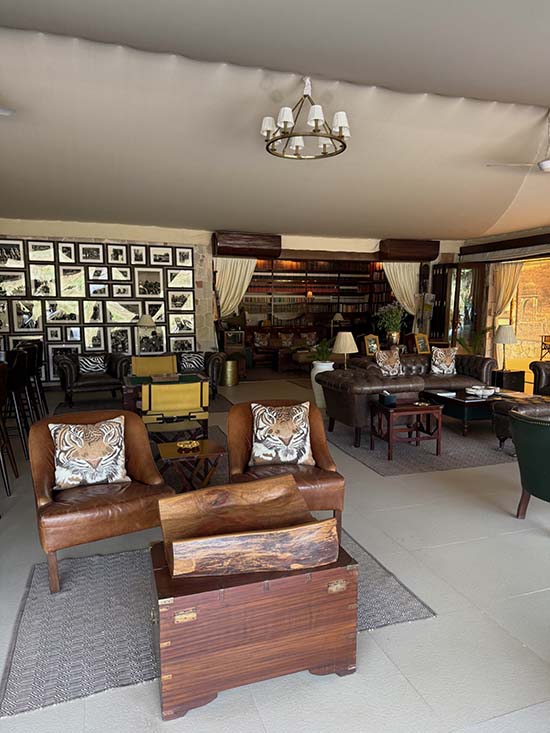
Where to Stay in Ranthambore
Sujan Sher Bagh is a stunning haven where you will literally be surrounded by tiger artwork, photographs and more. There are a number of lodges in the Ranthambore area if it’s not your speed — and pretty much of all them are fairly tiger-centric.

The food at this Sujan camp is also exceptional, with Anglo-Indian options and delicious thali dinners that are served in a different spot nightly so even though you’re eating at the same place, you’ll get some variation. For instance, one evening you’ll be poolside and the next you’ll be by a bonfire, hopefully telling stories of the day’s wildlife sightings!
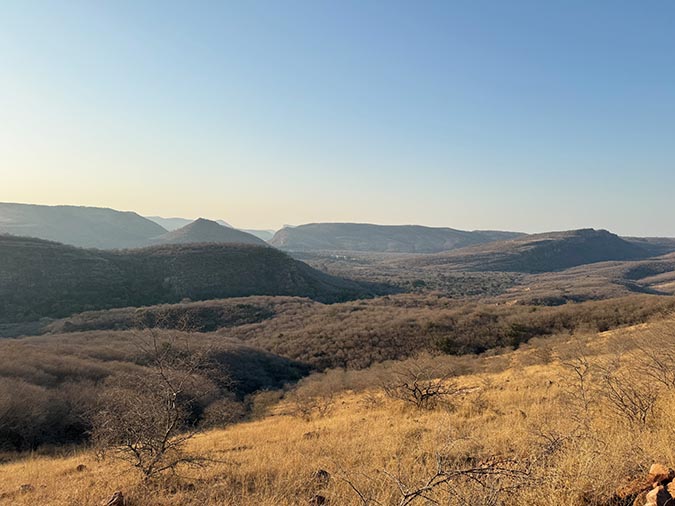
Generally, safari drives in Ranthambore happen early in the morning and later in the afternoon to skip the hottest parts of the day (think 5:30-10am and then 2:00 to 6:00pm). The tigers and leopards are the most active around dusk and dawn as well.
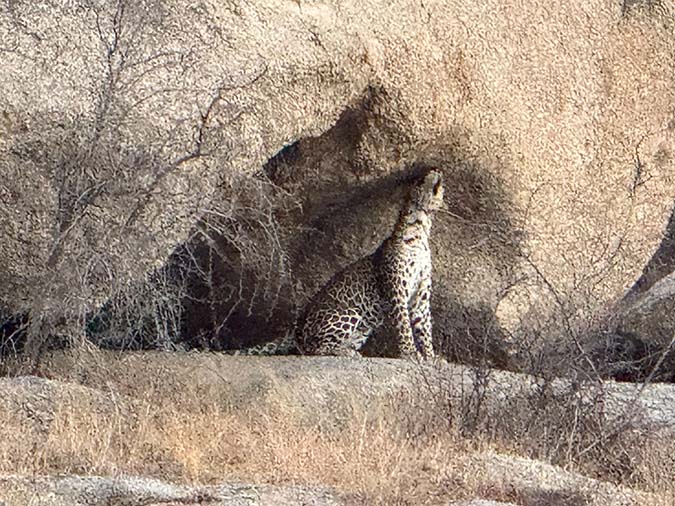
Best Time to Visit Jawai and Ranthambore
The dry season is October to March, and it is ideal for relatively cool temperatures and lack of rain, although the summertime monsoons do make the landscape lush and green. It’s easier to see the animals during the dry season however, given the lack of vegetation and greater likelihood they’ll need to venture further for water.
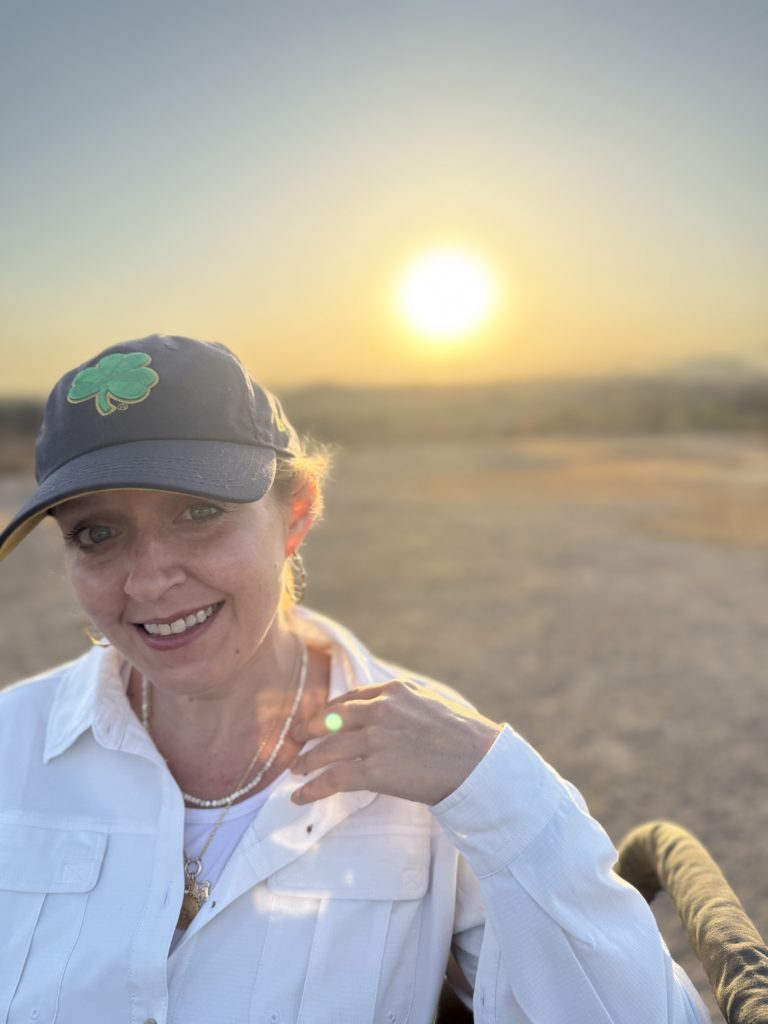
India Safari: What to Wear
Think safari-chic—olives, khakis, and camel or beige tones all work, along with traditional light-colored linens. Note the camps have laundry services so you can easily keep things clean.
What to Buy
You’ll likely be able to visit local villages and shops for beautiful handicrafts, textiles, and more; the Sujan camps also have boutiques with high end pieces made in India as well as partnerships with global brands (think L.G.R. sunglasses and Chantecaille cosmetics).
How to Get Around Jawai and Ranthambore
Hiring a driver to take you from whichever city or airport you start from is essential. You can work with a local company or check with your hotel and/or travel agent to find someone who will drop you off and pick you up at the end of your stay in each camp.
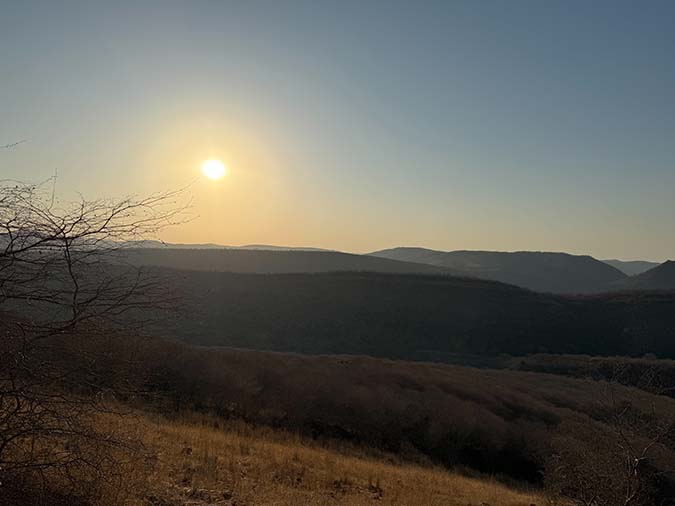
Do You Need a Guide?
You’ll have a guide assigned to you by your camp (in Jawai) or organized via your camp and/or travel agent in Ranthambore. Note that while safari drives in Jawai are fairly flexible, Ranthambore is regulated by zone (you’ll find out what zone you get that morning) and the park only opens from 6am to 6pm on a given day.
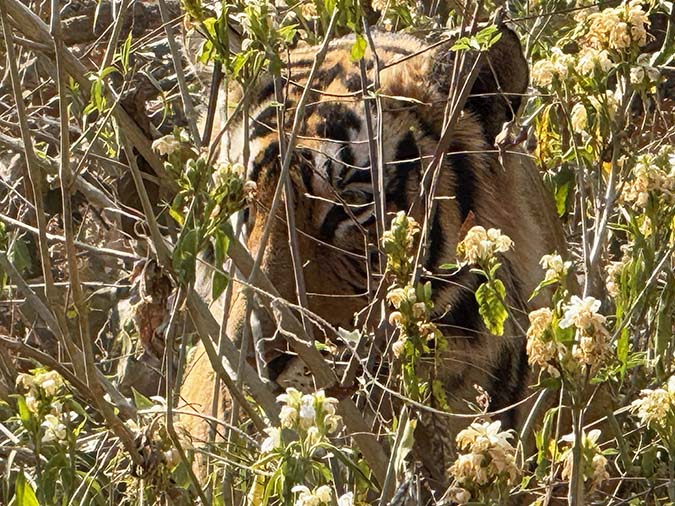
Jawai and Ranthambore are close enough to combine in one trip, and you can also mix them in other cities in Rajasthan for a longer trip. Think Jaipur, Udaipur, and Jodhpur plus the leopard and tiger camps for a fully immersive Rajasthani adventure!
Have you been on safari in India or seen leopards, tigers, or other big cats in the wild? Have you ever dreamed of visiting the cities of the Silk Road in India? Have any questions about how this adventure was organized and planned? Let us know in the comments or on our Growing Younger Facebook page!
– Jacqueline Zenn
You may also like to read the rest of Jacqueline’s amazing travel adventures to India. See Adventures in Rajasthan: Travel Guide To India’s Land of the Kings and Travel to Delhi and Agra: Culture, Modern Chaos and Timeless Beauty.
Photos: Jacqueline Zenn for Fountain Of 30
Are you following Fountain Of 30 on Facebook, X, Instagram and Pinterest? We’ve got lots going on, so join in on the fun! Subscribe to our newsletter here. You don’t want to miss a post and promise not to bug you to death. Join our Facebook Group called Growing Younger where women discuss everything good and bad about being over 50. Additionally Lauren hosts a bi-weekly podcast called Beauty is a Bitch!
Please pin!
